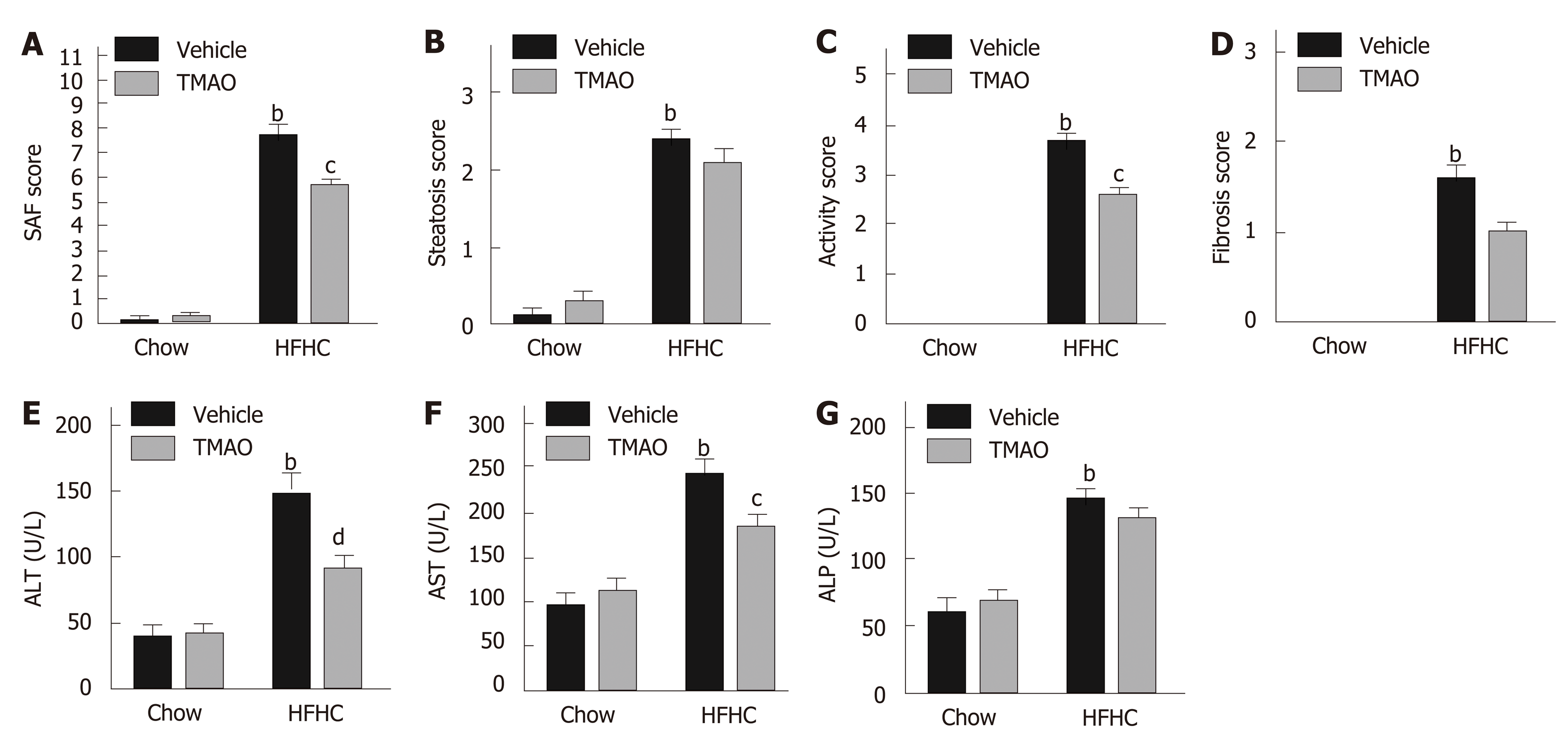Copyright
©The Author(s) 2019.
World J Gastroenterol. May 28, 2019; 25(20): 2450-2462
Published online May 28, 2019. doi: 10.3748/wjg.v25.i20.2450
Published online May 28, 2019. doi: 10.3748/wjg.v25.i20.2450
Figure 2 Trimethylamine N-oxide reduces the activity of steatohepatitis and improves the serological alterations in rats fed a high-fat high-cholesterol diet.
A: The steatosis, activity, and fibrosis scores; B: The scores of steatosis; C: The scores of activity; D: The scores of fibrosis; E: Serum levels of alanine transaminase; F: Serum levels of aspartate transaminase; G: Serum levels of alkaline phosphatase. The data are presented as the mean ± SE (n = 8-10). aP < 0.05, vs rats fed a chow diet; bP < 0.01, vs rats fed a chow diet; cP < 0.05, vs rats fed a high-fat high-cholesterol diet; dP < 0.01, vs rats fed a high-fat high-cholesterol diet. SAF: Steatosis, activity, and fibrosis; ALT: Alanine transaminase; AST: Aspartate transaminase; ALP: Alkaline phosphatase; TMAO: Trimethylamine N-oxide; HFHC: High-fat high-cholesterol.
- Citation: Zhao ZH, Xin FZ, Zhou D, Xue YQ, Liu XL, Yang RX, Pan Q, Fan JG. Trimethylamine N-oxide attenuates high-fat high-cholesterol diet-induced steatohepatitis by reducing hepatic cholesterol overload in rats. World J Gastroenterol 2019; 25(20): 2450-2462
- URL: https://www.wjgnet.com/1007-9327/full/v25/i20/2450.htm
- DOI: https://dx.doi.org/10.3748/wjg.v25.i20.2450









